If you’re passionate about your faith and would love to be more involved in ministry, then you might be curious about how to become a pastor.

Qualified pastors can guide a congregation and change other people’s lives by pointing them to God’s Word.
Editorial Listing ShortCode:
Since a pastor is the spiritual leader in a church, there’s often a process that’s meant to deepen your knowledge and train you in spiritual formation and in performing religious ceremonies. The process to becoming ordained can vary depending on the church and denomination.
How to Become a Pastor
Becoming an ordained pastor is a transformative journey that requires commitment and perseverance. Each denomination or church has its own requirements on how to become a preacher, but you’ll generally have to obtain both a bachelors and a masters degree and be active in your church.
Editorial Listing ShortCode:
It’s advisable to talk to your local church and ask about their specific ordination requirements. Most pastoral candidates will take the following steps:
- Study a related bachelor’s degree. If you want pastor training, focusing on this field during your undergrad can help you build a solid foundation. You might choose to major in religious studies, divinity, philosophy, and theology. Some liberal arts degrees may cover these areas as well. Alternatively, you can take a pre-seminarian major to directly prepare for seminary studies.
- Get involved with your local church. After your bachelor’s degree, you can gain hands-on experience by becoming more involved at your local church. One common requirement for ordination is being a member in good standing. You can also get a better grasp of which areas you might want to concentrate on by volunteering in various programs. You might even be able to apply to become an assistant pastor.
- Earn a master’s degree for pastors. Most of the time, pastors are required to hold a master’s degree to qualify for ordination. A Master of Divinity (MDiv) is a common degree for future pastors in the US, but you may also pursue a Master of Theology (ThM) or a Master of Arts (MA) in a related field. Aside from advanced academic study, an MDiv also delves into Christian ministry practices like preaching and pastoral care. A number of online Christian universities even offer online theological degree programs for students interested in distance learning options. In addition to an online masters, some universities offer online DMin degree (Doctor of Ministry) programs as well.
- Get ordained in your denomination. As early as during graduate school, you can already approach your denomination or a local church and apply to be a pastor. Once your qualifications are approved, you can meet with an ordination council as a candidate and complete a series of tests and interviews. If you’re deemed successful, you’ll then go through an ordination service.
After ordination, you can officially start serving in ministry as an ordained pastor.
5 Things You Can Do as a Pastor
Pastors juggle multiple roles, from providing spiritual leadership to leading Bible meetings and coordinating programs. Here are just five roles that you may take on as a pastor:
1. Teacher

As a pastor, you’ll serve as a teacher to your congregation since you’ll be communicating the Word of God. The main focus of a teaching pastor is to preach in worship services and trainings.
Outside of the church, pastors may teach in academic settings. With a master’s degree, they may teach philosophy or theology in colleges or conduct Bible classes for younger students.
2. Pastoral Counselor
While all pastors are meant to be counselors, some pastors particularly specialize in the art of counseling. Pastoral counselors provide therapy services to members of their church or even people in the community who are seeking help.
They often talk about spiritual problems as well as everyday matters, such as career, family, and marriage. Pastoral counselors often need extra training, but you may choose it as a specialization when you’re studying for your masters.
3. Missionary
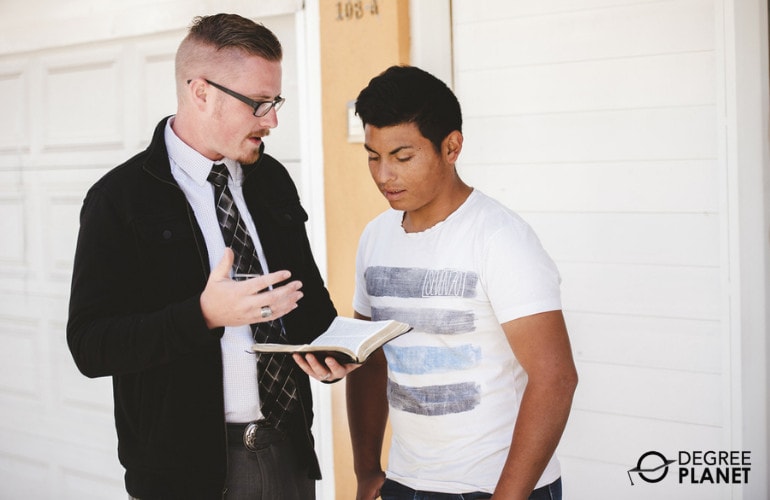
Religious organizations send missionaries to other areas to conduct a specific mission. For example, in their mission field location, missionaries may introduce people to their religion or help out with services such as healthcare or classroom teaching.
A missionary’s location can be local or international, and they can opt for short-term or long-term opportunities. Pastors who do missionary work may receive a salary and benefits from their sponsor church community or organization.
4. Chaplain
Many pastors serve in the community as chaplains. They may serve in prisons, fire departments, police departments, hospitals, schools, or the military.
Editorial Listing ShortCode:
Chaplains are in charge of providing religious services at an institution, but they’re often meant to serve in a non-denominational way that can apply to different religions. These religious services include offering spiritual leadership as well as conducting religious ceremonies such as blessings, baptisms, and funerals.
5. Program Director
Some pastors oversee the day-to-day activities of their church and coordinate specific programs. Among other tasks, they may supervise meetings and hire staff.
On top of this, pastors help determine the overall direction of their church, from preparing regular progress reports to deciding how to allocate funds. Beyond church activities, they may do community outreach or work with nonprofits to contribute to charitable causes.
Pastoral Careers & Salaries
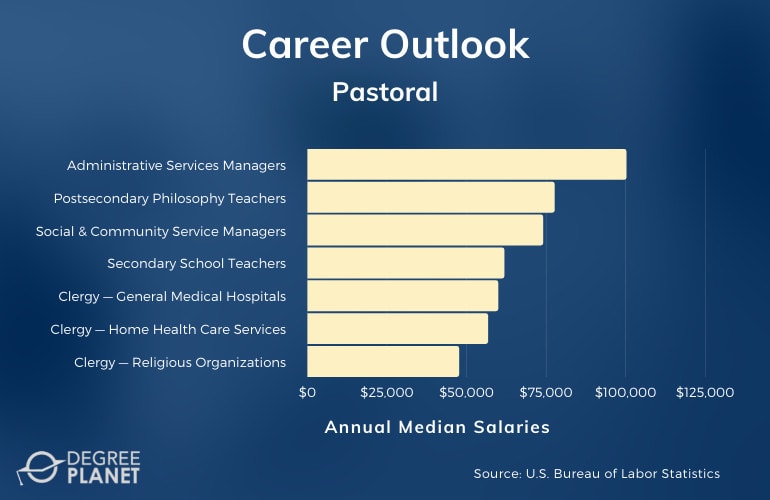
Pastors tend to work at local churches or denominational centers, but they can also take on additional commitments for the church community. Some pastors also work as university professors, social service managers, or chaplains.
Many pastorate positions require masters-level training. A masters or PhD is also required for postsecondary teachers. According to the Bureau of Labor Statistics, here are the median salaries for these ministry-related careers:
| Careers | Annual Median Salaries |
| Administrative Services Managers | $100,170 |
| Postsecondary Philosophy and Religion Teachers | $77,610 |
| Social and Community Service Managers | $74,000 |
| Secondary School Teachers | $61,820 |
| Clergy — General Medical and Surgical Hospitals | $59,900 |
| Clergy — Home Health Care Services | $56,700 |
| Clergy — Religious Organizations | $47,610 |
| Religious Activities and Education Directors | $46,980 |
| Religious Workers | $37,500 |
| Counselors — Religious Organizations | $36,900 |
Pastors can have a wide range in their salaries. How much you can make often depends on the size of the church or organization you work for, your level of experience, and your location.
Ministers can work in a variety of settings, giving spiritual direction, sharing their theological knowledge, and assisting with missions for the greater good.
Choosing a Degree Program to Be a Pastor

If you’re wanting to become a pastor, here are some key points to consider when you’re looking for a bachelor degree program:
- Compatibility with your church. It’s beneficial to search for degree programs that can help you on the road to becoming a pastor. These are usually related to theology, religion, or philosophy. Most programs will state if they can help you prepare for Christian ministry work, but you can also consult with your church leaders about which degrees they would recommend.
- School and program credentials. Attending an accredited school is essential since an accredited bachelors is a common requirement for graduate school. You can either apply to a regular university or a seminary. You can also check to see if many graduates went on to become pastors and if the faculty includes actual pastors and theologians.
- Coursework. It can help to look at the exact coursework of the programs that you’re interested in, especially if you’re taking a broader liberal arts degree. Does your prospective program cover classes about your religion specifically? You can also see if ministry electives or specializations, such as counseling or Church history, are offered.
- Resources. Getting practical experience is a key part of your studies. For example, your school might have linkages to religious organizations that you can intern with, or there might be support services available. Many schools have a campus ministry that you can volunteer in or related clubs that you can join. Some programs will require you to do an internship and participate in events.
- Tuition. You might want to think of a maximum tuition that you would be willing to pay, and then you can compare the cost per credit for all the programs that you’re interested in. Schools will have varying miscellaneous fees, with on-campus programs potentially costing more than online because of the physical facilities. You may want to plan out your financial aid options early on, especially since some schools offer unique scholarships.
In order to get to know each program better, you may want to attend a campus tour or orientation.
Pastor Schools Accreditation
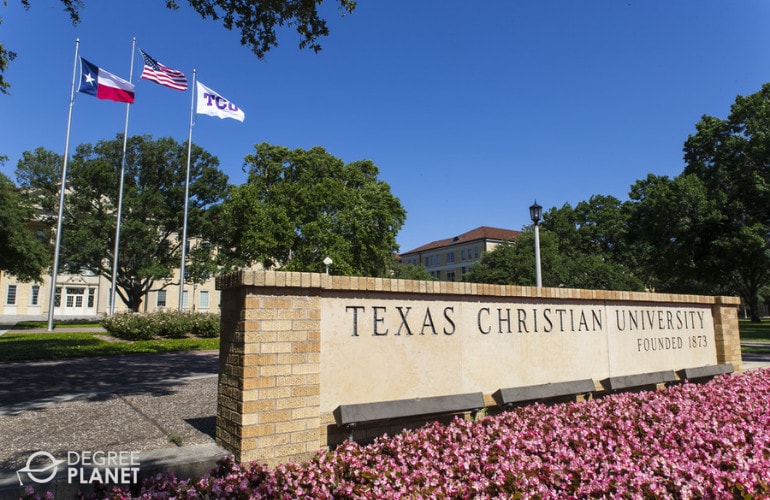
It’s essential to study at a regionally accredited school if you’re aiming to become a pastor. If a school is accredited, future universities and even an eventual church ordination council will be more likely to credit your degree.
A masters degree is often needed to become a pastor, and an accredited undergraduate degree is a common prerequisite for grad school. Attending an accredited school can also be an eligibility requirement for government financial aid.
Editorial Listing ShortCode:
Accredited schools are seen as more reliable because their educational offerings and student services have to go through a comprehensive review process. The US Department of Education has a full list of accredited schools nationwide.
Is Financial Aid Available?

Financial aid can help qualifying students pay for their bachelor’s degree. As an incoming undergraduate student, you can fill out the Free Application for Federal Student Aid (FAFSA) to determine your eligibility for government financial aid. This need-based aid often comes in the form of loans, grants, and work-study programs.
Loans will have to be paid back with interest after you graduate, but grants don’t have to be paid back. You can also look into scholarship opportunities, especially those specific to your school or meant for undergraduates earning a faith-related degree. Compared to general scholarships, you might have a greater chance of getting these because there are fewer applicants.
What’s a Pastor?

A pastor is a person who serves as a spiritual leader of a religious organization or church community. Pastors may deliver sermons, lead worship sessions, and give spiritual counsel.
Additional responsibilities may include coordinating church activities, working with volunteers, doing administrative tasks for their church, and even overseeing missions. Pastors are generally ordained, and they typically go through several years of education and earn considerable experience in ministry. They may become authorized to perform official rites such as baptisms, weddings, and funerals.
Pastors may specialize in a particular area as well, such as in youth ministry, spiritual formation, missions, or social justice.
Is a Minister a Pastor?
The titles “minister” and “pastor” are often interchanged because their meaning can vary per denomination.
| Minister | Pastor |
|
|
While pastors can perform the duties of ministers, ministers aren’t necessarily pastors.
What Does a Pastor Do?
Pastors can have a diverse set of responsibilities. For one, they may lead worship sessions and other church services, deliver sermons, provide training and mentorship, and counsel people according to their religious practice. At the same time, they may perform practical tasks for the church, such as leading church committees, supervising church staff, and arranging logistics and finances.
Editorial Listing ShortCode:
Aside from being active in their own organization, pastors often work with people outside of their church as well. They might conduct outreach programs, hold Bible studies and retreats for the general public, give coaching about spiritual problems, or assist with final rites at hospices. A larger church often divides these church services responsibilities among multiple pastors.
What Degree Do You Need to Be a Pastor?
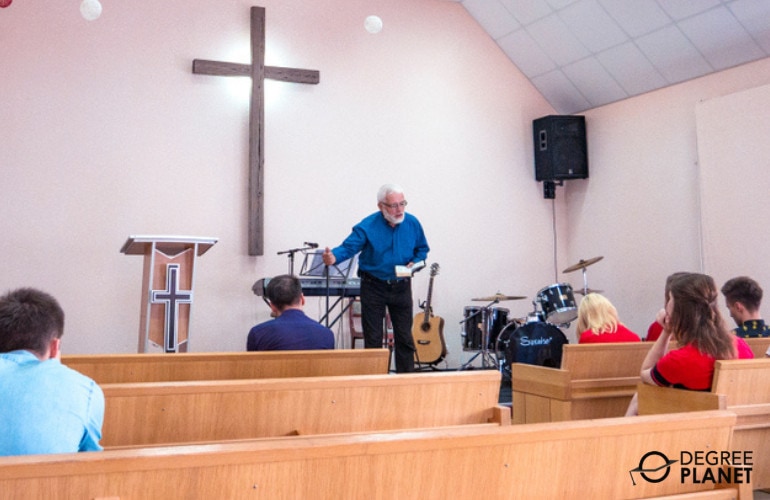
As part of your pastor schooling, you’ll likely need a bachelors degree followed by a masters degree. For a bachelor’s degree, you may want to choose a major that will train you in theology, such as:
- Religious Studies
- Pastoral Studies
- Divinity
- Theology
- Ministry Leadership
- Religious Education
- Philosophy
Alternatively, you could opt for a pre-seminary degree instead so you can go straight into your graduate training. For graduate school, the standard degree to pursue is a Master of Divinity (MDiv). Some aspiring pastors may pursue a Master of Theology (ThM) or a Master of Arts (MA) in Theology or a related field instead.
Ultimately, the level of education that’s required for you to become a pastor will depend on the particular church or denomination in which you want to serve.
Can Anyone Become a Pastor?

Prospective pastors are often required to have a good standing in their church as well as formal religious education. This usually involves having a specific bachelors degree or masters degree. Aside from these standard prerequisites, each church might have other requirements for you to fulfill regarding church services before they’ll officially ordain you.
The whole training process can take several years, so it often takes a lot of dedication as well as a sincere sense of calling to become a pastor. Some churches have restrictions as to who can become a pastor. For instance, some churches or denominations might not accept candidates who are married or female. To learn more about how to be a pastor, you may want to talk to the leaders of your local church.
What Qualifications Do You Need to Be a Pastor?
How do you become a pastor? It depends on your denomination, but these are the usual qualifications of a pastor:
- Bachelor’s degree. Future pastors may want to pursue a related major, such as theology, religious studies, worship arts, or ministry.
- Master’s degree with pastoral training. A Master of Divinity is the standard choice for prospective pastors, but you might be able to pursue other related degrees.
- Significant church experience. To qualify as a pastoral candidate, you’ll often need to have a solid track record of volunteering in your local church. Completing an internship can also help you acquire ministry experience.
While specific qualifications can vary from church to church, these are common prerequisites for pastoral candidates.
How Much Does a Pastor Make?
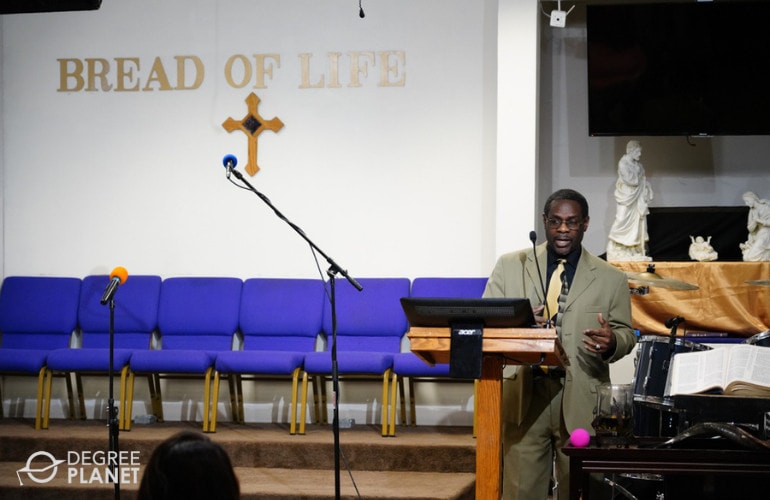
According to the Bureau of Labor Statistics, the median yearly salary for clergy is $49,720. A pastor’s salary can change greatly depending on where they’re serving and in what capacity. For instance, a lead teaching pastor will often make more than an associate pastor.
How much a pastor makes also depends on the size of the church, their location, and their level of experience and education. Most clergy earn between $30,450 and $80,920 each year. Aside from this, pastors may do part-time work outside of their church.
Editorial Listing ShortCode:
They might work as directors of religious activities and education or social and community service managers. These positions have median salaries of $46,980 and $74,000, respectively (Bureau of Labor Statistics).
How Long Does It Take to Become a Pastor?
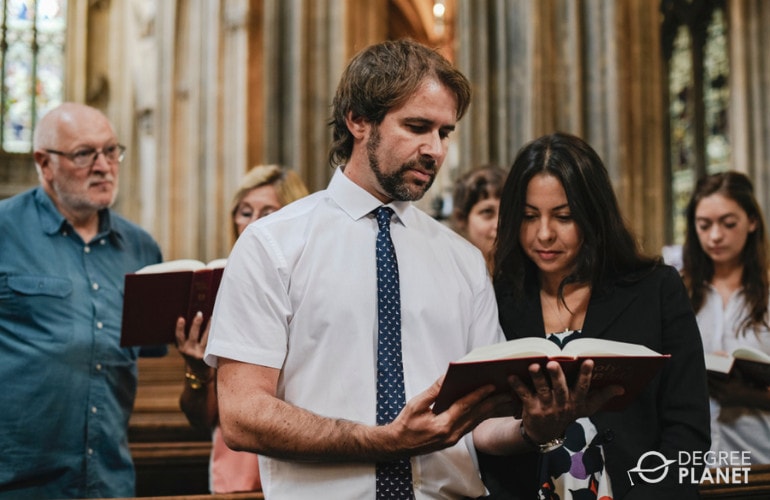
Each denomination has different requirements, but becoming a pastor generally takes several years. First, a bachelors degree usually takes 4 years to earn. Then, you may spend around 3 years getting a pastoral masters degree if you study full-time. How long it takes you to complete your masters degree will also depend on the length of your program.
After this, the ordination process in some churches could take up to 2 or 3 years if you’re asked to gain more experience first. Some congregations allow you to start your pastoral candidacy while you’re studying for graduate school, which could help speed up the process.
What’s the Difference Between a Pastor vs. Priest?
Pastors and priests are religious titles that you hear about a lot, but they’re not the same.
| Pastors | Priests |
|
|
Pastors can belong to various Christian denominations, while priests are typically Catholic.
What’s the Difference Between a Pastor vs. Preacher?
Pastors and preachers may fulfill different roles in the church.
| Pastors | Preachers |
|
|
Pastors are ordained leaders of the church, while preachers could be lay members who are skilled communicators.
Getting Your Pastoral Degree Online

If you want to become a pastor, one of your first steps can be to pursue a bachelor’s degree that will teach you about ministry, biblical study, and theology.
This could be your stepping stone to a masters degree, so it’s strategic to study at an accredited school that has a track record for training pastors. Aside from on-campus programs, online pastoral ministry degrees are also available. Many of these programs have experienced pastors and church members as faculty, with opportunities to intern at a local church.
If you’re eager to follow your calling to become a pastor, why not start planning your college education today?

